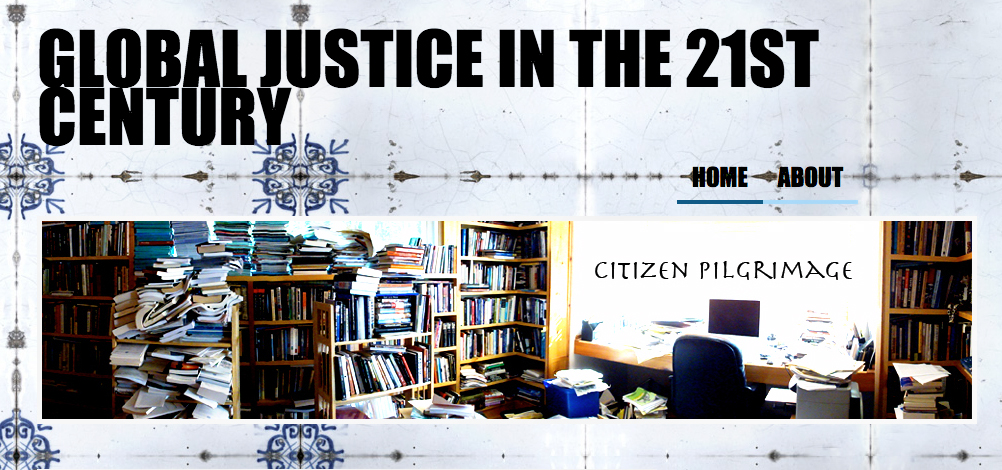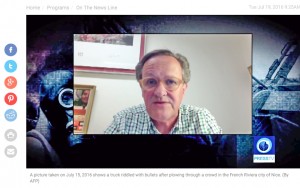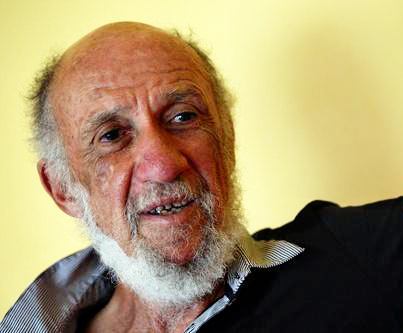Archive for the ‘Uncategorized’ Category
Narrating Turkey at a time of national crisis
By Richard Falk
A night before the attempted coup of July 15th, in conversation with an elegant secular business leader and permacologist in the seaside town of Yalikavak I was surprised by the intensity of her negativity toward the government, expressed with beguiling charm. She insisted that Turkey had hit rock bottom, that things in the country could not get worse. I felt speechless to respond to such sentiments that struck me as so out of touch with the reality of Turkey.
This woman lives in a beautiful, secluded country house nearby, enjoys an extraordinarily successful career, is associated with a prominent Turkish family, possesses an engaging personality by any measure, and from all appearances lives a harmonious and satisfying modern life of comfort, good works, and human security.
And yet she is totally alienated by the Turkish experience of Erdoğan’s prolonged leadership, which she alternatively describes as ‘autocratic’ and ‘Islamic.’ I mention her as the foregrounding of the typical mindset encountered among Turkish secular elites, displaced from their positions of control that lasted until the Kemalist hegemony began to weaken, and an outlook that confines political discussion to enclaves of out of touch likemindedness.
When I politely demurred during our dinner, suggesting that while there were justifiable criticisms of the AKP patterns of governance and of Erdoğan’s political style, especially since 2011, Turkey when compared with other countries in the region and its own pre-AKP past, and taking some account of a variety of challenges, still offers the region a positive example of what can be achieved by an energetic and ambitious emerging economy under what had been until recently generally stable political conditions.
There are heavy costs of various kinds that should be acknowledged along side this somewhat affirmative picture—human rights have been abridged, journalists and academics suppressed who voice strong public criticisms of Erdoğan, and the Turkish state that he leads.
There have also been a variety of charges of corruption and contrary well grounded charges of a ‘parallel government’ operating under the secretive authority of the Hizmet movement led by ‘the man in Pennsylvania,’ Fetullah Gülen, a mysterious Muslim cleric who preaches a moderate message. He is alleged to be the mastermind of the subversion of the Turkish state, and is accused by Erdoğan as having orchestrated the failed coup, and on this basis, Turkey has formally demanded his extradition to face criminal prosecution.
Arriving in Istanbul in the afternoon of July 15th with the expectation of participating in a conference the next morning held under the auspices of Koç University on the theme “Migration and Securitization of Europe: Views from the Balkan Corridor.” Listed in the program as the keynote speaker I felt quite nervous as to whether my prepared remarks captured the intended spirit of the event, but I will never know as an immediate personal impact of the attempted coup was a phone call to our hotel room at 2:00 AM telling us that ‘unfortunately’ it was necessary to cancel the conference…
Horror in Nice and elsewhere
Jan Oberg comments on Iranian PressTV (July 19, 2016) some 11 minutes into this program.
“The War On Terror is history’s most stupid and counterproductive. If the terrorism problem has increased about 80 times since 2001 we should be intellectual and decent enough to ask ourselves: What are we doing wrong? Nobody asks this question and it will end us up in hell.”
Turkey’s coup – One more problem for NATO
By Jan Oberg
Commenting on Russia Today
July 16, 2016
Comment on US implementation of Iran nuclear deal
June 10, 2016
Jan Oberg comments on why the US continues, soon a year later, to drag its feed. It’s lack of trust that still stands in the way.
TFF PressInfo # 371: If Obama visits Hiroshima (Part 2)
By Richard Falk
In Prague, Obama significantly noted that “..as the only nuclear power to have used a nuclear weapon, the United States has a moral responsibility to act.” [emphasis added]
In the 1996 Advisory Opinion of the International Court of Justice (ICJ) on the legality of the threat or use of nuclear weapons, the judges unanimously concluded that there was a legal responsibility to seek nuclear disarmament with due diligence. The language of the 14-0 ICJ finding is authoritative: “There exists an obligation to pursue in good faith and bring to a conclusion negotiations leading to nuclear disarmament in all aspects under strict and effective international control.”
In other words, there is a legal as well as a moral responsibility to eliminate nuclear weapons, and this could have made the Prague call for a world without nuclear weapons more relevant to present governmental behavior.
The Prague speech while lauding the NPT never affirmed the existence of a legal responsibility to pursue nuclear disarmament. In this respect an official visit to Hiroshima offers Obama a golden opportunity to reinvigorate his vision of a world without nuclear weapons by bringing it down to earth.
Why is this? Read the rest of this entry »
TFF PressInfo # 369 – A Sunni-Salafist-Zionist Coalition Changing Middle East?
By Jan Oberg
Please try Google “Gulf states want nuclear weapons against Iran – Israel “ and only one Western mainstream media will appear, an excellent article by The Telegraph’s Raf Sanchez in Jerusalem.
The only other media carrying the story is Russia Today and Vigilant Citizen and MintPress News also carries the story and offers a wider background
What is this about?A new coalition?
So the usual Western media filter, meaning it must be interesting. And it is a quite sensational story: Saudi Arabia and Israel are up to a nuclear mischief against a country that has just been prevented from acquiring nuclear weapons by means of a huge legally binding document, UN Security Council endorsement and extremely tight monitoring mechanism. What’s it about?
It’s about Israel’s defence minister Moshe Ya’alon saying in public at the recent Munich conference that Arab states are “not willing to sit quietly with Iran on the brink of a nuclear bomb”.
He thinks that Iran was liable to break the agreement as their economic situation improves with the lifting of international sanctions. Ya’alon is quoted as saying that “I speak about the Gulf states and North African states too…For them, Iran and the Muslim Brotherhood are the enemy. Iran is the bad guy for us and for the Sunni regimes. They are not shaking hands [with Israelis] in public, but we meet in closed rooms.”
So not only Jordan’s monarchy and Egypt’s dictatorship but also Gulf and North African states: A coalition lead by Saudi Arabia and Israel – Israel as the only nuclear weapons power in the region and Saudi Arabia as the most likely next nuclear weapons state.
For much too long the world’s attention has been on Iran’s imagined nuclear weapons, not on the dozens or hundreds real nukes that Israel possesses as a non-member of which is the Non-Proliferation Treaty (NPT).
One can say that Israel and Saudi Arabia lost the political battle against the nuclear deal with Iran concluded with the five permanent UNSC members and Germany last year – and now will do their utmost to use Iran’s non-nuclear weapons status as a pretext for others going nuclear against, predominantly, Iran.
Propaganda hysteria dominates in an age where knowledge plays a diminishing role
The problem for them, however, is that Iran will be difficult to sell as a real threat – but we live of course in Read the rest of this entry »
Short comments on the situation in Europe
March 28, 2016
Jan Oberg’s comments on the EU, the Pope, refugees and the weakening of the US Empire
Saudi support for extremism must be halted
By Jonathan Power
December 8th 2015
On Sunday the German vice-chancellor, Sigmar Gabriel, publicly accused Saudi Arabia of financing Islamic extremism in the West and warned that it must stop.
He said that the Saudi regime is funding extremist mosques and communities that pose a danger to public security. “We have to make clear to the Saudis that the time of looking away is over,” Gabriel told the newspaper, Bild am Sonntag in an interview.
At last some Western leaders are grasping the Saudi Arabian nettle. For too long the country has been given a clean pass. Saudi Arabia’s oil and massive arms purchases have made Western politicians mute for decade upon decade. But now, with clear evidence that Saudi Arabia has allowed rich Saudis to fund first Al Qaeda and more recently Islamic State (ISIS), Western leaders are waking up to what their expediency has tolerated and allowed.
Thanks to Wikileaks we know that Hillary Clinton when Secretary of State wrote in a cable in December 2009 that “Saudi Arabia remains a critical financial support base for Al-Qaida, the Taliban and Lashkar-e-Taiba in Pakistan.” Lately, running for president, she has been explicit in her warnings.
Why has it taken so long for eyes to begin to open?
In his autobiography Richard Dearlove, the former head of MI6, the British Secret Intelligence Service (home of James Bond), wrote that some time before 9/11 Prince Bandar bin Sultan, then the powerful Saudi ambassador in Washington, told him that “The time is not far off in the Middle East when it will be literally ‘God Help the Shia’. More than a billion Sunnis have simply had enough of them.”
Dearlove, speaking last week, said he has no doubt that substantial and sustained funding from private donors in Saudi Arabia and Qatar, with their governments turning a blind eye, have played a central role in the IS surge. “Such things simply do not happen spontaneously”, he said.
Saudi Arabia over the next few years may well come to regret Read the rest of this entry »
Responding to Megaterrorism after Paris
By Richard Falk
Prefatory Note
The article below is based on an opinion piece published by Middle East Eye on December 1, 2015 under the title “A Different Response to ISIS after Paris.” My modified text places its focus on the originality of megaterrorism and its distinctive challenges, suggesting that the choice of response needs to be extended beyond the iron cage of militarism and vengeance. Also, it is essential for analysts and leaders to envision the response to the response as well as being preoccupied with how best to hit back. Increasingly, American politicians treat the challenge as if playing poker whereas the realities of the situation call for a chess players’ natural disposition to think ahead as many moves as possible. Finally, given the religious and civilizational dimensions of current versions of megaterrorism, it is vital to guard against various manifestations of Islamophobia.
What separates megaterrorism from other more customary forms of terrorism is the theme of this post. It is not possible to give a precise definition of megaterrorism by pointing to a threshold of casualties or the magnitude of response. Each megaterrorist event is decisively shaped by its distinctive sociopolitical and psychological context.
The focus here is to take account of this radical new category of threat posed in a variety of settings, critique the ‘war’ reflex and the war/crime binary, briefly consider alternate paths of response, and recommend risk and cost assessments that take into account adversary responses to the prescribed response. The 21st century experience with responding to megaterrorist events does not create confidence in either most conceptualizations of the challenges being posed or the responsive strategies chosen to be implemented.
The horrific Paris attacks of November 13th challenge the West more deeply in some ways than did the 9/11 attacks 14 years ago. Read the rest of this entry »
Dubbelspelet kring Ukraina
Av Ola Friholt
TFF Associate
Med den uttalade avsikten att underminera Vladimir Putins ställning i Ryssland har Natostaterna och övriga EUstater systematiskt förtigit Kievregimens vägran att följa de avtal den själv skrivit under.
Istället har Ryssland anklagats för dubbelspel och erövrarambitioner. Utvecklingen ser ut så här*:
1. Ukraina förhandlar med EU om ekonomiskt samarbete, vilket skulle innebära att bryta samarbetet med Ryssland. När president Janukovitj av sina ekonomer fick veta vad detta skulle kosta landet, avstod han från att underteckna det framförhandlade EU-avtalet.
2. Detta utlöste Maidanprotesterna, från grupper i västra Ukraina, vilka länge velat ansluta landet västerut. Dessutom deltog Janukovitjanhängare. Skottlossning utbröt från hus omkring torget, med okända skyttar. Detta tolkades som Janukovitjs ansvar.
3. Janukovic och Maidanledarna framförhandlade 21 feb 2014, tillsammans med Frankrikes, Tysklands och Polens utrikesministrar och en representant för Ryssland ett avtal, som gick ut på följande: a. Ömsesidig demobilisering av väpnade grupper.
b. Omedelbart arbete med författningsändringar, först för att begränsa presidentens befogenheter (som tidigare hänt efter den orangea revolutionen 2004).
c. Förhandling av ny författning att antas senast i december 2014.
d. Presidentval ska hållas i december genast efter att författningen antagits.
e. En nationell enhetsregering från båda sidor ska verka fram till valet i december 2014.
4. Underskrifterna på detta avtal ratificerades av Majdanrådet men avvisades av de hårdföra högeraktivisterna, som krävde omedelbar (lagstridig) avsättning av presidenten och förbud mot de två politiska partierna i östra Ukraina, d v s eliminering av den östliga politiska eliten.
5. Den 22 februari grep högerextremisterna makten och avsatte Janukovic som flydde till Ryssland. Read the rest of this entry »






